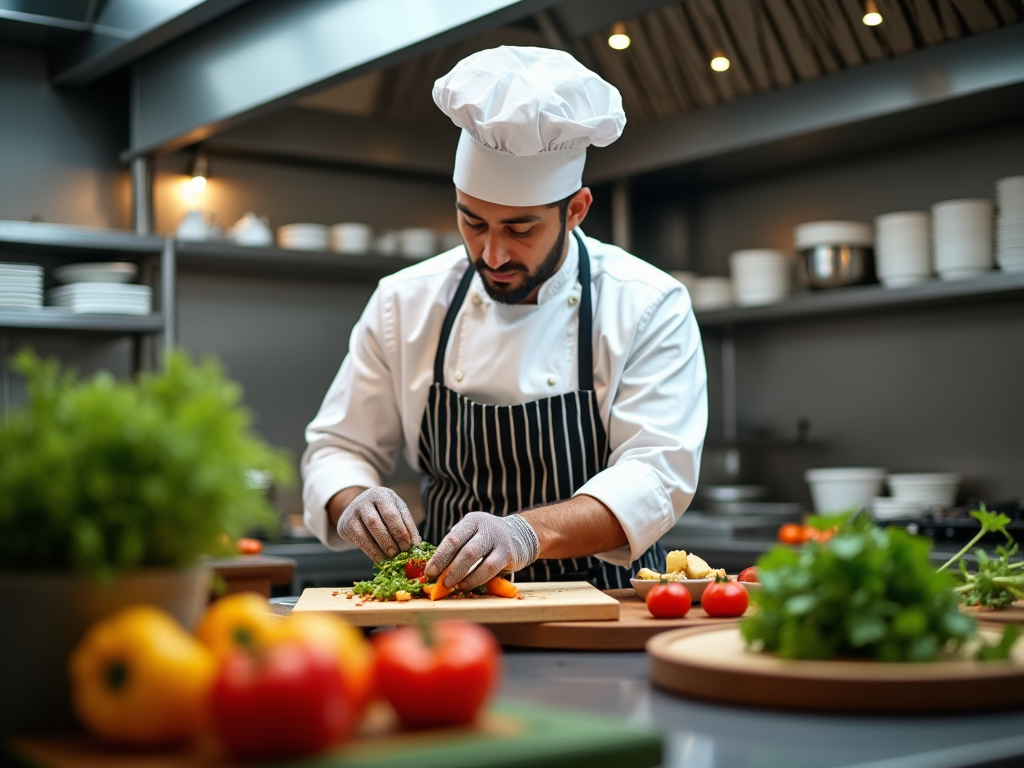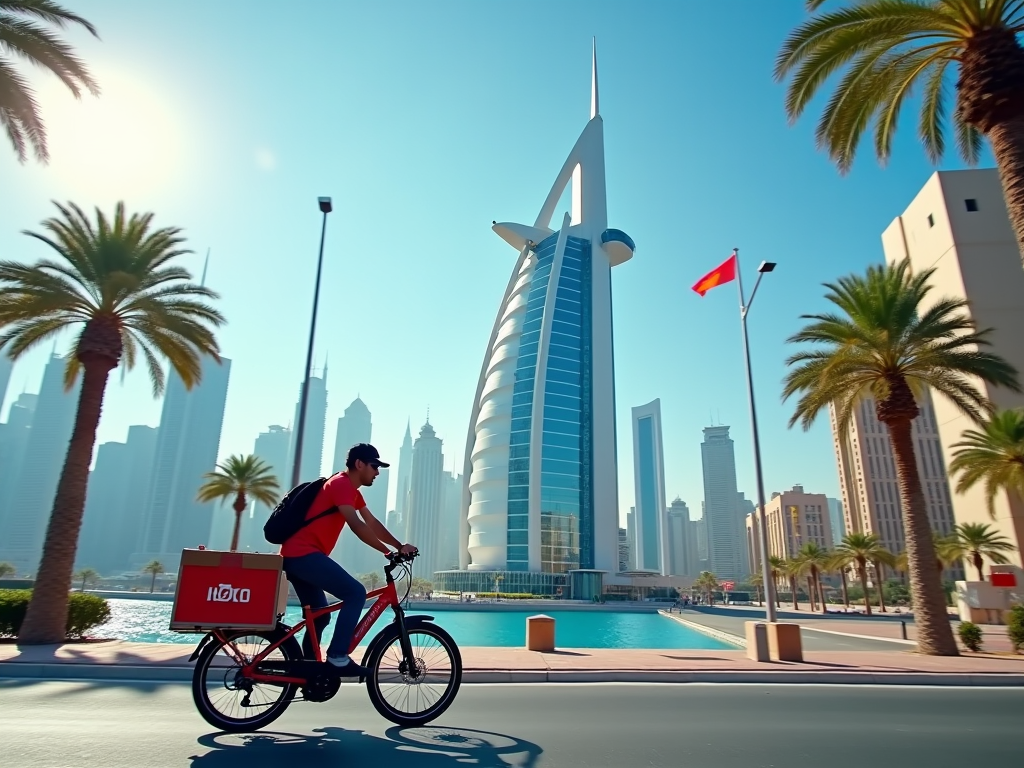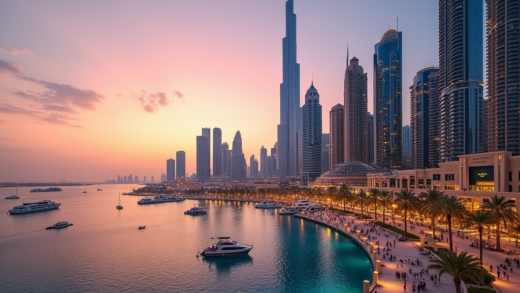Opening a restaurant in Dubai can be an exciting venture, offering you the chance to tap into a diverse and rich culinary market. The process, however, involves several critical steps, including understanding the local regulations, obtaining the necessary permits, and crafting a compelling business plan. This article will guide you through the essential stages to successfully launch your restaurant in this vibrant city.
Understanding the Market

Before diving into the logistics of opening a restaurant, it’s vital to understand the market dynamics. Dubai is known for its multicultural environment, attracting a variety of consumers with different tastes. Hence, it’s crucial to conduct thorough market research to identify your target audience and their preferences. Here are some key considerations:
- Demographics: Analyze who your potential customers are, including tourists, expatriates, and locals.
- Trends: Stay updated on current culinary trends in Dubai, from food delivery to health-conscious dining.
- Competitor Analysis: Identify and evaluate existing restaurants in your niche to understand what works and where gaps exist.
By gathering this information, you can tailor your restaurant’s concept to meet the specific needs of your audience, ensuring that you stand out in a competitive market.
Creating a Solid Business Plan

Your business plan is your blueprint for success. It should outline your restaurant concept, financial projections, marketing strategies, and operational plans. Here’s a basic structure to follow:
- Executive Summary: A brief overview of your business idea and key objectives.
- Concept and Menu: Describe your restaurant concept, the type of cuisine you’ll offer, and samples of your menu items.
- Marketing Strategy: Detail how you plan to attract customers, including online and offline marketing techniques.
- Financial Projections: Provide estimates of startup costs, revenue forecasts, and break-even analysis.
- Operating Plan: Explain how your restaurant will run on a day-to-day basis, including staffing and supplier arrangements.
A well-crafted business plan not only guides your operations but also serves as a tool for attracting investors or securing loans.
Navigating Legal Requirements
Dubai has strict regulations regarding restaurant operations, making it crucial to navigate the legal landscape effectively. Below are the primary licenses and permits you’ll need:
- Business License: Obtain a general business license from the Department of Economic Development (DED).
- Food and Safety Permits: Secure the necessary food safety approvals from the Dubai Municipality.
- Alcohol License: If you plan to serve alcohol, you must acquire a specific permit through the Dubai Police and relevant authorities.
- Trade License: Depending on your restaurant type, additional licenses may be required.
Failure to comply with these regulations can result in significant delays or fines, so it’s advisable to consult with local legal advisors to ensure you meet all requirements.
Choosing the Right Location
The location of your restaurant plays a crucial role in its success. A well-situated restaurant can attract more foot traffic and loyal customers. Here are important factors to consider when choosing your location:
- Visibility: Look for a spot that is easily seen and accessed by pedestrians and drivers.
- Foot Traffic: Areas with high foot traffic, like malls or popular tourist attractions, can boost your customer base.
- Competition: Analyze the competition in the area. Too many similar establishments can make it harder to succeed.
- Rent and Overhead Costs: Ensure the location fits within your budget to avoid financial strain later.
Take the time to scout various neighborhoods and assess their potential before making your final decision.
Once you’ve laid the foundation for your restaurant, effective marketing is vital to attract customers. Consider using a multifaceted approach that covers both digital and traditional platforms:
- Social Media Marketing: Utilize platforms like Instagram and Facebook to showcase your dishes and promotions.
- Website Development: Create a user-friendly website where customers can view your menu, make reservations, and learn more about your concept.
- Local Influencers: Collaborate with food bloggers and influencers to spread the word about your restaurant.
- Loyalty Programs: Implement rewards programs to encourage repeat customers.
Consistent and engaging marketing efforts will help you build a loyal customer base and enhance your restaurant’s visibility in the bustling Dubai dining scene.
Conclusion
Opening a restaurant in Dubai requires careful planning, a deep understanding of the market, compliance with local regulations, and effective marketing strategies. By following these steps and conducting thorough research, you can establish a successful eatery that resonates with the diverse dining culture of Dubai. With passion and the right approach, your restaurant can flourish in this dynamic city.
Frequently Asked Questions
1. What is the average cost of opening a restaurant in Dubai?
The average cost can vary widely depending on location, size, and concept, but expect to invest anywhere from AED 300,000 to AED 1 million for a small to medium-sized restaurant.
2. Do I need a special visa to open a restaurant in Dubai?
Yes, to open a business in Dubai, you will require a UAE residence visa, which is typically granted upon obtaining a business license.
3. How long does it take to open a restaurant in Dubai?
The process can take anywhere from a few months to over a year, depending on how quickly you can secure licenses, permits, and location.
4. Is it necessary to hire a local partner to open a restaurant in Dubai?
For certain types of businesses, yes. While many expatriates can hold 100% ownership in free zones, a local partner might be required for mainland businesses.
5. What are some popular cuisines in Dubai?
Dubai has a diverse culinary scene, with popular cuisines including Middle Eastern, Indian, Asian, and Western. Offering authentic, high-quality dishes can help attract a wide customer base.


